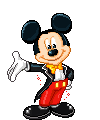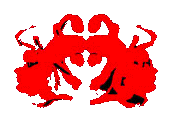|
|
|

|
Ψ Behavior & Belief
|

|
 Our attitudes influence our actions in some circumstances. Our attitudes influence our actions in some circumstances.
“The ancestor of every action is a thought” - Emerson
Ψ Attitudes influence actions:
1. if external influences on our words & actions are minimal.
2. if the attitude is specific to the behavior.
3. if we are conscious of our attitudes.
 “Thought is the child of action” - Disraeli “Thought is the child of action” - Disraeli
Ψ Behavior influences attitudes:
Ψ e.g. The lesson of role-playing concerns how what is unreal can subtly involve into what is real.
Ψ Research confirms that "Saying becomes
believing" if there is no compelling external explanations for
one's words (e.g. being bribed or coerced).
Ψ The attitudes-follow-behavior principle works for
immoral acts as well as for moral acts.
Ψ Experiments confirm that positive behavior
towards someone fosters liking for that person. The inverse is also true.
Ψ
Four common ways to gain the compliance of another!
1. foot-in-the-door - asking for a small commitment & after gaining compliance,
asking for a bigger commitment.
2. door-in-the-face - asking for a large commitment & being refused, then asking
for a smaller commitment.
3. lowball technique - getting a commitment from a person & then rising
the cost of that commitment.
4. that's-not-all-technique - a sales technique in which the persuader makes
an offer & then adds something extra to make the offer look better before
the target person can make the decision.
Ψ Brainwashing, the term used to describe what happened to American prisoners during the Korean War is a potent form of social indoctrination that uses many of the techniques described above.
Ψ David Myers
says;" If we want to change ourselves in some important way, it's best not to wait for
insight or inspiration. Sometimes we need to act ... To strengthen our convictions, it helps to enact them. ..."
Ψ Why behavior affects attitudes:
Ψ According to Cognitive Dissonance Theory, there is a tendency for individuals to seek consistency among their cognitions (i.e., beliefs, opinions). When there is an inconsistency between attitudes or behaviors (dissonance), something must change to eliminate the dissonance. In the case of a discrepancy between attitudes & behavior, it is most likely that the attitude will change to accommodate the behavior.
• Cognitive Dissonance Theory best explains what happens when our actions openly contradict our well defined attitudes.
|

|
Ψ Self-Perception
theory asserts that we develop our attitudes by observing our own behavior & concluding what attitudes must have caused them. Self-Perception Theory provides an alternative explanation for cognitive dissonance effects.
• Self-Perception Theory best explains what happens when internal cues are so weak or confusing they effectively put the person in the same position as an external observer.
|

|
Social Psychology
Robert C. Gates
|

|
|










